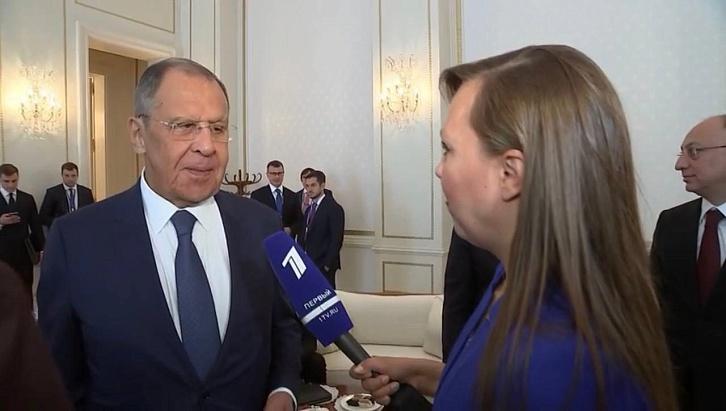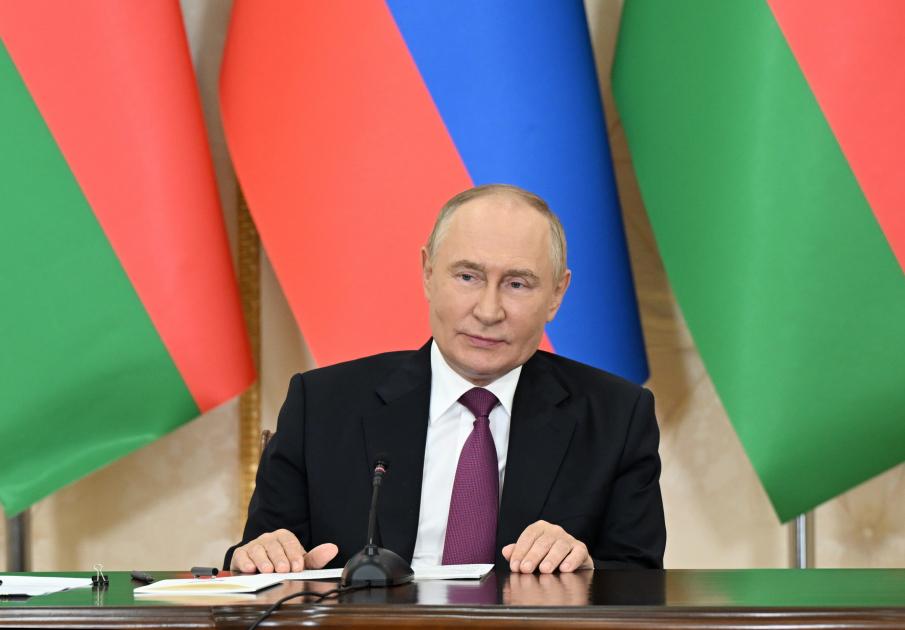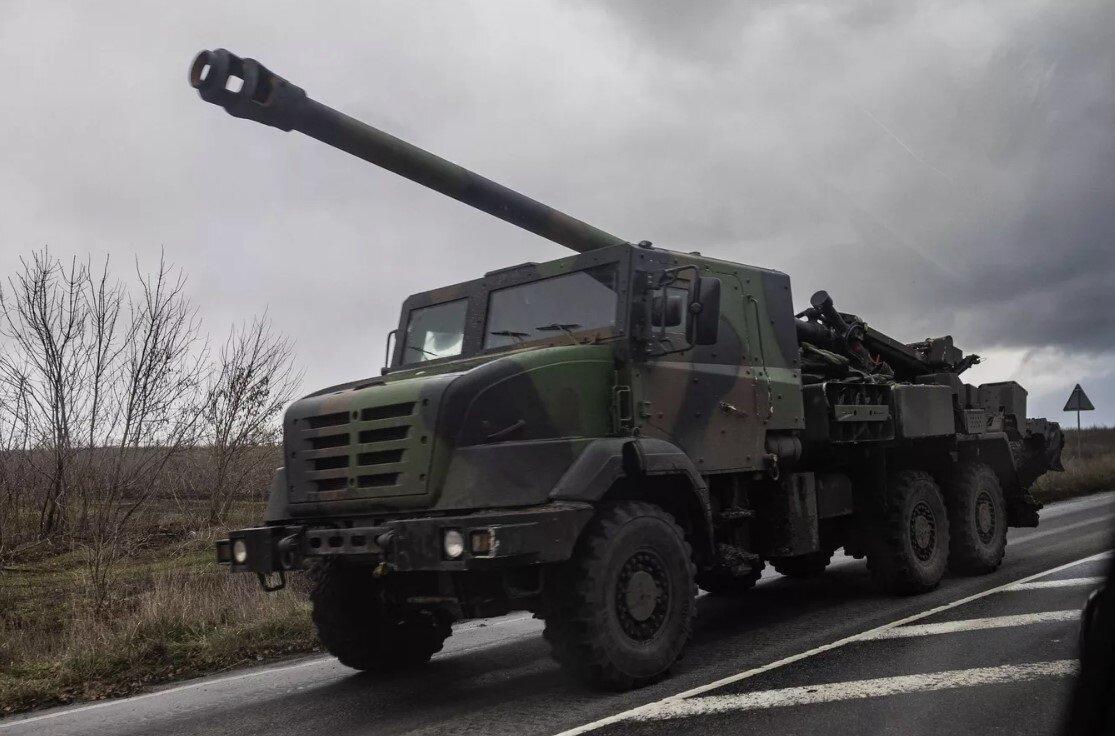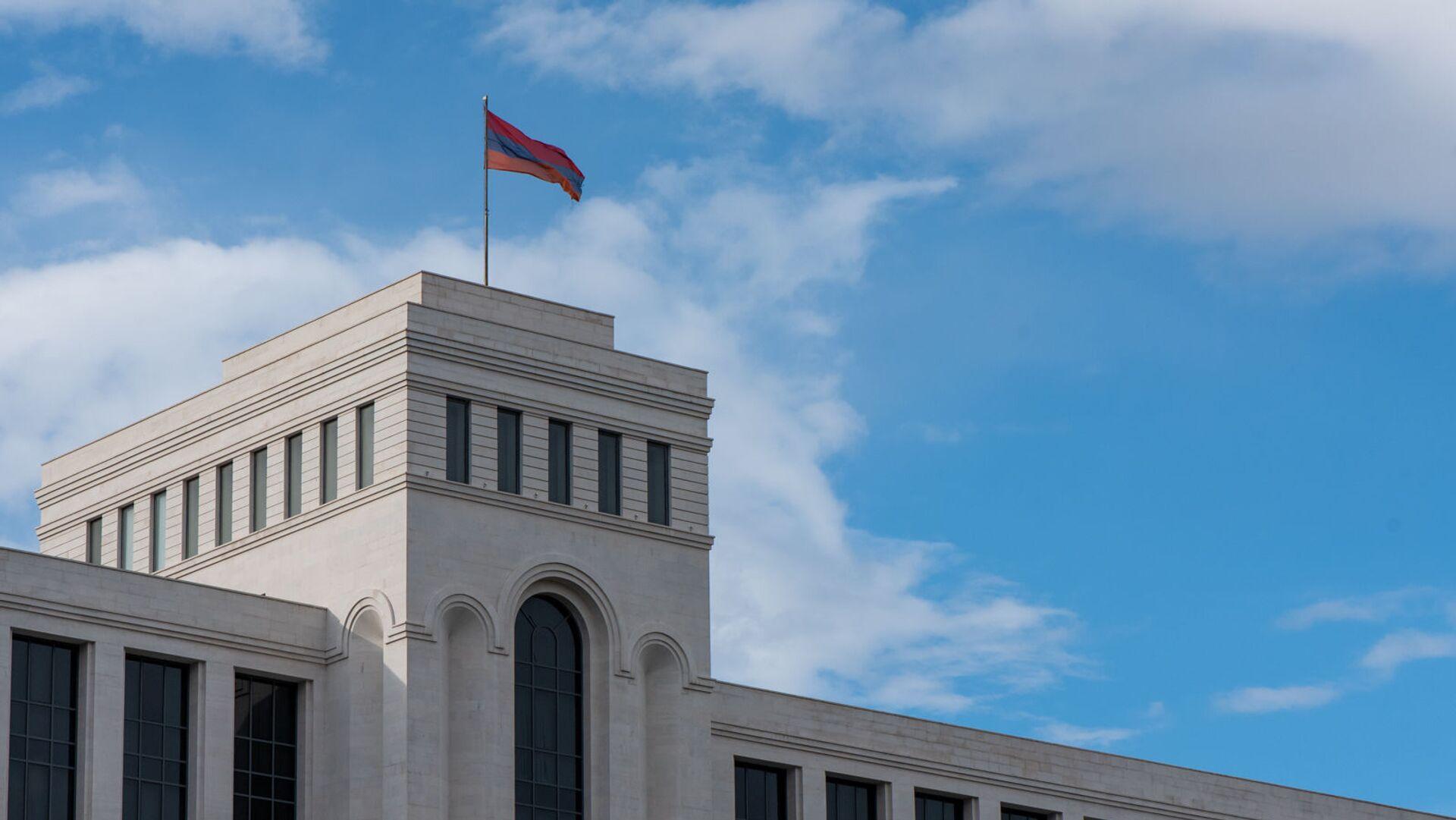Yerevan caught between a rock and a hard place Strategic dilemma
Armenian media are expressing outrage over recent statements made by Russian Foreign Minister Sergey Lavrov, who, in an interview with Channel One, accused Yerevan of creating obstacles to the opening of transport communications in the region.
“Russia finds it difficult to understand why Yerevan is sabotaging the agreements on communications through the Syunik (Zangezur) region of Armenia,” Lavrov noted, adding that Moscow supports the unblocking of communications and the swift conclusion of a peace treaty between Azerbaijan and Armenia.

The Russian Foreign Minister also emphasized that the basis for the resolution should remain the trilateral agreements reached by the leaders of Russia, Azerbaijan, and Armenia in 2020–2022.
“The foundation laid in the framework of the trilateral meetings and documents fully retains its relevance,” Lavrov stated.
Lavrov's statements clearly indicate to Yerevan that Moscow aims to play a leading role in resolving Armenian-Azerbaijani relations. Achieving this resolution is possible if Armenia adheres to the trilateral agreements reached with Russia's participation.
The Russian position aligns with Azerbaijan’s interests for several reasons.
Firstly, Moscow is clearly signaling to Yerevan that despite attempts to get closer to the West and delays in the negotiation process, Armenia is ultimately obligated to meet the main conditions of the peace agenda promoted by Baku and reflected in the Trilateral Agreements.
“If there is anything we can do to facilitate the signing of a peace agreement, we would be very pleased to do so,” assured the Russian leader.

Secondly, in a recent interview with the newspaper Izvestia, Foreign Minister Jeyhun Bayramov stated that Azerbaijan has never refused various platforms for negotiations with Armenia.
"The Russian Federation's platform has always been acceptable to us. We are ready to use this platform," the minister said, reminding that it was the Armenian side that did not agree to it.
On the other hand, it’s important to highlight that for Baku, the fundamental importance lies not in the location of the negotiations, but in the agreements that will be reached as a result and their flawless implementation by Armenia. Azerbaijan insists that Armenia fully renounce its territorial claims. Therefore, it is important for us that the peace treaty eliminates the possibility of revisiting this issue in the future. Unfortunately, the preamble to Armenia's Constitution still contains territorial claims against Azerbaijan. Moreover, Armenia not only refuses to amend its constitution and obstructs negotiations, thereby delaying the conclusion of a peace agreement, but also openly prepares for a new conflict with Azerbaijan by purchasing Western-made weapons.

Caliber.Az, citing reliable diplomatic and military sources, reported that in recent weeks, modern French 155-mm CAESAR self-propelled artillery systems and their components have been delivered to Armenia. It is also known that the weapons are being transported from Orly Airport in France to Mehrabad Airport in Iran, from where the Iranian airline Meraj delivers the weapons directly to their final destination—Armenia. So far, one battalion of CAESAR self-propelled artillery systems (12 units) has been delivered to Armenia.
Additionally, the Armenian army has received dozens of R511 and R530 air-to-air missiles, 30 ERYX anti-tank missiles, dozens of German-made DM32 grenade launchers (also known as "Bunkerfaust"), as well as Panzerfaust 3 anti-tank systems. Furthermore, the Armenian armed forces have been supplied with around 500 French-made Apilas disposable rocket launchers and 50 American BGM-71 TOW anti-tank missile systems. Baku is also aware that, in parallel with the air transportation of French weapons, the Iranian seaport of Bandar Abbas is receiving military cargo from India, also intended for further shipment to Armenia.
All these facts indicate that the Armenian leadership is prioritizing militarization over the normalization of relations with Azerbaijan. The strengthening of Armenia’s military capabilities, aimed at undermining peace efforts in the region, not only causes concern in Baku but also sends a clear signal to Moscow that Yerevan is becoming a stronghold of the West.
There is also another important detail. Moscow’s increased activity is occurring against the backdrop of EU attempts to pressure Azerbaijan. Just recently, the Brussels-based portal EUobserver, citing the European Commission, reported that the European Union is urging Azerbaijan to sign a peace treaty with Armenia before the 29th session of the Conference of the Parties to the UN Framework Convention on Climate Change (COP29), which will be held in Baku in November.
“It is time to take decisive steps towards a sustainable and lasting peace. Azerbaijan should seize the momentum of COP29 to sign peace with Armenia,” a commission spokesperson recently told EUobserver.
Moscow, in turn, views such European “initiatives” in the South Caucasus region as an attempt by the EU to interfere in the implementation of the trilateral agreements.

The Armenian reaction to Lavrov's remarks is quite telling. "The statement by the head of the Russian Foreign Ministry not only causes regret but also calls into question the Russian Federation's constructive involvement in regulating relations between Armenia and Azerbaijan," the Armenian Foreign Ministry recently noted in response to Sergey Lavrov's comments.
The "panic attack" that seems to have gripped the Armenian Foreign Ministry following Lavrov's criticism of the official Yerevan almost rules out the possibility of the Armenian side participating in negotiations on a Russian platform. Prime Minister Pashinyan may try to avoid responding to Moscow’s proposal, steering clear of taking a definitive stance. Following the instructions of its Western patrons while fearing a complete break with Russia, the Armenian leadership finds itself in a difficult position.








